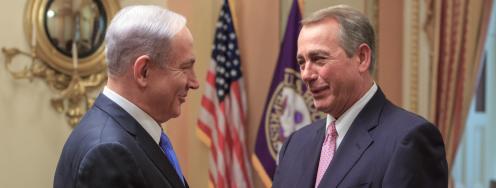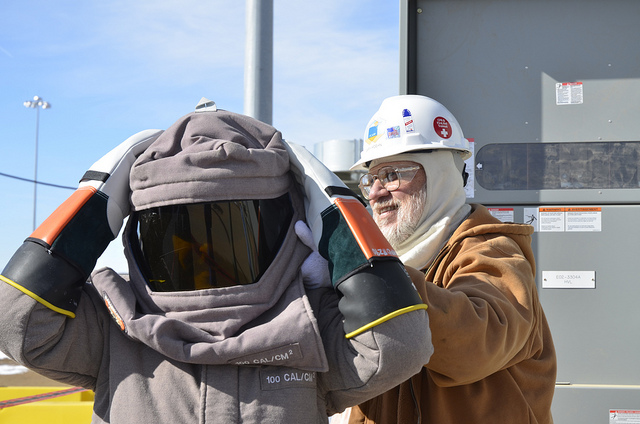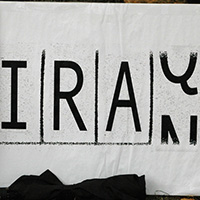Cost Explosions Upsetting Relationship Between Labs and Pentagon
On the radar: New DoD-NNSA dynamic; Obama’s WMD redline on Syria; Missile defense spending is going to stagnate; the Emerging U.S. military position on Iran; Developments in Israeli debate; Elliott Abrams advocates steps leading to war; and Iran IAEA personnel in danger?
August 21, 2012 | Edited by Benjamin Loehrke and Leah Fae Cochran
Troubled DoD-NNSA relations - A 2010 agreement allowing the transfer of money from the Department of Defense to the Department of Energy to pay for nuclear weapons projects is shifting the civilian-military balance on nuclear weapons decisions. It is also putting pressure on NNSA, as DoD is increasingly upset with the nuclear labs’ unreliable budget estimates and skyrocketing costs. Stephen Young at All Things Nuclear looks at the troubled relationship between DoD and NNSA. http://bit.ly/SNBqvL
--Young obtained a copy of the unreleased 2010 DoD-DOE Memorandum of Agreement, available here. (pdf) http://bit.ly/NEgK8E
Siren - "We have been very clear to the Assad regime, but also to other players on the ground, that a red line for us is (if) we start seeing a whole bunch of chemical weapons moving around or being utilized...That would change my calculus,” said President Obama yesterday at a press conference. "We cannot have a situation where chemical or biological weapons are falling into the hands of the wrong people." Matt Spetalnick of Reuters has the story. http://yhoo.it/OuFNfM
Missile defense spending - The Pentagon did not provide detailed data on total missile defense spending in its latest budget summaries. So your humble EW editor combed DoD budget documents and recreated the data. The Pentagon expects missile defense budgets to hover around $9.5 billion per year through FY2017.
--”It seems that DoD expects missile defense spending to be volatile and not grow with inflation. This is causing interesting problems for the Pentagon as procurement and operations and maintenance costs are growing within a flattening budget,” writes your humble EW editor in a new report for the Center Arms Control and Non-Proliferation. http://bit.ly/SK5hFA
--Click for the full spreadsheet of the Pentagon’s expected missile defense spending by program, agency, and year. (pdf) http://bit.ly/SK5hFA
Welcome to Early Warning - Subscribe to our morning email or follow us on twitter.
--Have a tip? Email earlywarning@ploughshares.org. Want to support this work? Click here.
Gen. Dempsey - “I may not know about all of [Israel's] capabilities...But I think that it’s a fair characterization to say that they could delay but not destroy Iran’s nuclear capabilities,” said Gen. Martin Dempsey, Chairman of the Joint Chiefs of Staff.
--Gen. Dempsey’s comments are “representative of the emerging U.S. military position: distrustful of Iran; wary of getting sucked into a war with the Iranians; and impatient with the idea that they have no way of dealing with the Iranians short of yet another war,” writes Spencer Ackerman for Danger Room. http://bit.ly/OM32zd
End of debate - Shai Feldman argues that two recent developments have essentially put a lid on the Israeli debate on Iran. The first, writes Feldman, was President Sharon Peres coming out in opposition to a strike. The second was an ex-advisor’s statements doubting the competency of pro-strike Minister of Defense Barak and Prime Minister Netanyahu.
--”With President Peres publicly joining the many formidable opponents of a military strike and General Sagi raising questions about the competence of Israel's current leaders, Israel now lacks the minimal consensus required for a demanding military campaign to destroy Iran's nuclear installations. The debate has been settled. At least for now.” Full post at Foreign Policy. http://bit.ly/TPF3Ut
Subtle - “Time to Authorize the Use of Force Against Iran” writes Elliott Abrams in The Weekly Standard. He’s quick to note that it would not necessarily mean imminent war, but would be structured exactly like joint resolutions that imminently preceded the Iraq wars of 1991 and 2003 and the invasion of Afghanistan. http://bit.ly/PtLWdL
Yongbyon dome - Jane’s Defence Weekly reports that North Korea has completed the dome atop the new Yongbyon light-water reactor building, according to satellite imagery. AP has the story. http://bit.ly/PaWc7R
Report - The IAEA Annual Report 2011 (.pdf) http://bit.ly/PCgyJE
Tricky situation - In the event of a surprise Israeli attack on Iran’s nuclear facilities, the IAEA inspectors and personnel assigned to Iran could be in danger, writes Mark Hibbs in Arms Control Wonk. He argues that situation is different from the 2003 strike on Iraq, where inspectors were notified ahead of time to evacuate, because Israel is unlikely to give the IAEA advanced warning of a strike. However, if the IAEA pulls personnel because of the risk, it could escalate the situation and ruin the “continuity of knowledge” of Iran’s programs. See his full analysis here. http://bit.ly/Nf5vSF



